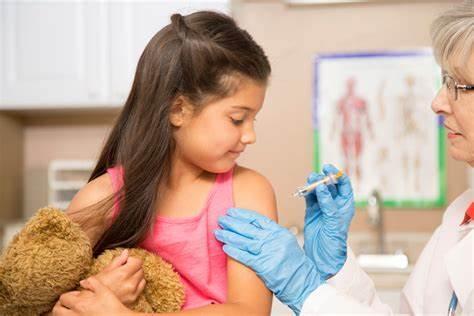
Summer is Actually the Perfect Time to Think About Fall Allergies

Santa Monica, CA-
You hear the words, “fall allergies” and “ragweed season” and you want to run as fast as possible in the other direction. You’d rather the thoughts of itchy eyes, sneezing and sniffling didn’t intrude on summer picnics and lounging by the pool.
“Thinking ahead to when fall allergy symptoms start can save you a lot of suffering down the road,” says allergist Dr. Bernard Geller, Allergy & Clinical Immunology Medical Group. “Many people who suffer from fall allergies aren’t aware they need to start taking their medications about two weeks before their symptoms normally start. And since ragweed can begin to bloom in mid-August in some regions of the country, that means starting medications in early August.”
Ragweed, the biggest allergy trigger in the fall, usually starts releasing its pollen with cooler nights and warm days in August. It can last into September and October when the first frost hits, which is why it is a major contributor to fall allergies. If you suffer from spring allergies, there’s a good chance you also suffer from fall allergies.
“A single ragweed plant can release one million pollen grains in one day,” says Dr. Geller. “Because wind can carry ragweed up to 100 miles from its source, windy days can heighten the intensity of allergy symptoms.” Dr. Geller points out that mold also contributes to fall allergy symptoms and says that mold spores are everywhere in the fall, and can outnumber ragweed grains in the air – even when pollen season is at its worst.
But allergy symptoms don’t have to ruin your fall fun. Here are some tips from the American College of Allergy, Asthma and Immunology to keep in mind as summer winds down and fall makes its appearance:
- Take medications before symptoms start and don’t stop them immediately after ragweed is no longer in the air. Wait about two weeks after pollen counts go down to stop.
- Keep car and home windows closed so pollen doesn’t get indoors.
- Leave your shoes at the door, and take a shower, wash your hair and change your clothes after you’ve been working or playing outdoors.
- Monitor pollen and mold counts. Weather reports often include this information and can help you determine best times of day to go outside.
- Wear a NIOSH-rated 95 filter mask when mowing the lawn or doing other chores outdoors, and take appropriate medication beforehand.
- See an allergist to find relief.
Allergists are trained to identify your allergies and provide a personal treatment plan. They can also provide immunotherapy – allergy shots – which targets your exact triggers and can greatly reduce the severity of your symptoms. Allergy shots can also prevent the development of asthma in some children with seasonal allergies.
For more information about treatment of allergies and asthma, visit our website at www.SneezeWheeze.com, or reach us by telephone: (310)828-8534 or by e-mail: FrontOffice@allergyandclinical.com
Dora Afrahim, MPAP, PA-C
Allergy & Clinical Immunology Medical Group
You Might Also Enjoy...


FDA Approves the First Peanut Allergy Treatment

Telehealth: The Advantages of Telemedicine

Four Tips to Help you Stay Calm and Ease Sniffling, Sneezing, & Wheezing this Holiday Season

Keeping Allergies and Asthma at Bay is the Best Gift



